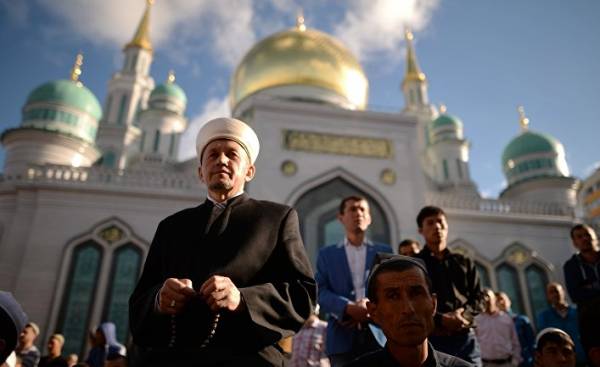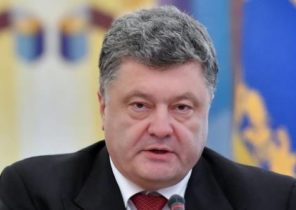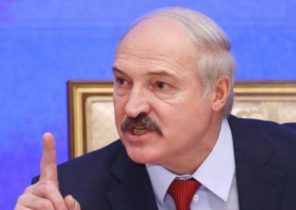
Expect growing interest in Arabic language in Russia. Two years ago marked two hundred years since the founding of the Institute of the Arabic language (most likely we are talking about Lazarev Institute of Oriental languages, established in 1815; in 1927, he joined the Moscow Institute of Oriental studies, which lasted until 1954; in 1956, was officially established the Institute of Asia and Africa at the Moscow state University. The University, which until 1972 was called the Institute of Oriental languages — approx. ed.).
The Arabic language entered the territory of Russia in the sixth century in the era of the Islamic conquests, primarily in Dagestan.
But, what today promotes the study of the Russian language among the Arabs? Many words in the Russian language, repeat words from Arabic. Russian language has undergone significant influence of the Arabic language. In some regions even became the official language.
And don’t forget silk road, which passed along the border of Russia.
“Sucre” = Sugar
The word “sugar” is 100% Arabic word. In Europe sugar was through the contacts with the Islamic civilization in the VIII-IX century. And then it was called “sweet salt”.
Russia, France, UK, Spain are so widely use the word sugar, it became an integral part of their national languages.
“Say” = Tea
If You are stranded at the Moscow airport and don’t know anything except the Arabic, it is best to take a tea with sugar: can speak Arabic and You will understand.
The word “tea” comes from the Persian language — from there it passed into Arabic.
Russian made the first letter “h” and not have to change anything else in this word.
“Masjid” = Mosque
If You want to pray, then You will want to ask about the “mosque” and people will know where the nearest.
It is obvious that this word is borrowed. It also appeared in the Russian language as a result of contact with the Islamic civilization. The latter also brought with them words like “Koran”, “mosque”, “Mullah”. Even, it would seem that the Russian word for “to pray” also goes back to the word “Mullah”.
Rice, tomatoes and eggplant
“Banadoura” = tomatoes
Don’t be surprised if in the Russian market You will hear similar to the Arabic word “bandura”: the Russians call them “tomatoes”. If the tomatoes You want to buy a kilo of rice, the Arabic word “Aruz” is also consonant with the Russian “rice”. Same thing with the word eggplant in Arabic it sounds like “baingan” or “Vatican”.
“Chest” = chest
Looking at the origin of many words, you realize the level of interaction between different civilizations. As a rule, words associated with food, beverage and technology.
For example, in the Arabic language “trunk” is a matter for the transport or storage of goods. Because of the large trade turnover between Russia and Arab countries, the word trunk is used in Arabic, and in Russian languages.
The cat in Russian!
The word “cat” in Russian sounds like in Arabic. Russian “cat” in Arabic becomes “Gur.”
As in other languages, the Russian language borrowed a lot of technical terms. For example, the word “lamp” in Russian, and in Arabic is pronounced almost identically (“Lamba” — “lamp”).
There are many other similar words: “Bulis” (in Arabic) — “police” (in Russian), “Meydan” — “square”, “pharmasia” — “pharmaceuticals.” In the course of studying the Russian language, You will find more such words!







